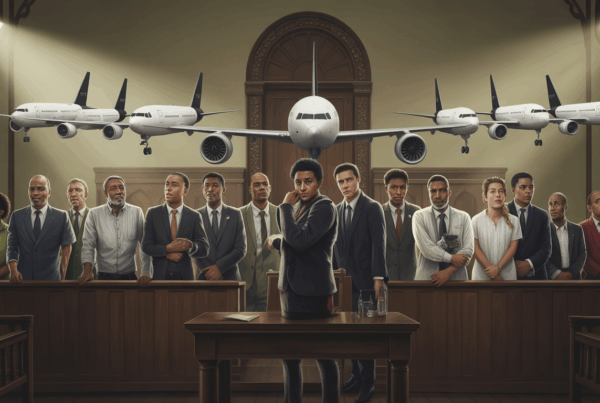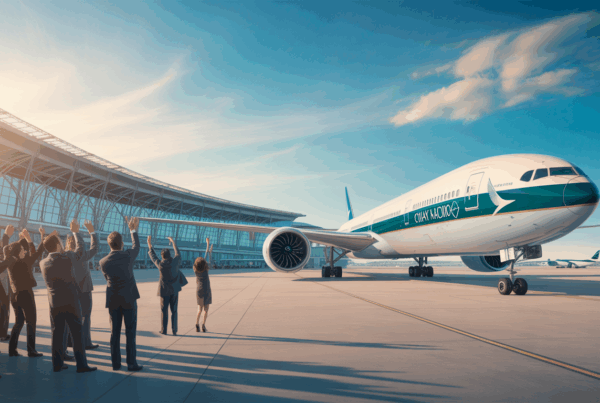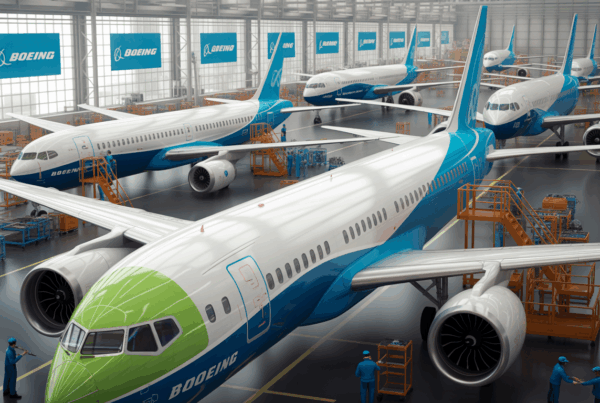The Trump administration ends legal action against Boeing, marking a significant step in dealing with the aftermath of the tragic 737 MAX. This decision has provoked contrasting reactions in the aviation community and among the victims. By closing the legal-administrative file, the federal government is taking a stand against lengthy procedures, aimed at restoring confidence in the industry. Boeing retains a central role in the debate, faced with the need to improve its safety features. The decision symbolizes an approach aimed at accelerating the airline industry's economic recovery, while leaving the question open.
The legal climate surrounding Boeing and its 737 MAX model has experienced a major turning point with the Trump administration's decision to put an end to the legal actions initiated following the tragic incidents. This decision comes against a backdrop of tensions and questions about crisis management at the aeronautical giant.
In a move that surprised many observers, the Trump administration has chosen not to pursue ongoing legal proceedings against Boeing. This about-turn is part of a drive to calm controversy and focus attention on the resumption of production, particularly after the fatalities associated with the 737 MAX. The decision also echoes the intense debate over the role of national authorities in overseeing aviation safety standards.
Critics had already pointed to internal dysfunction and communication problems with regulatory bodies. Indeed, some Boeing executives have acknowledged that major errors were made in managing the crisis, particularly during sensitive hearings before bodies such as the US Senate. To find out more, see the detailed report on Boeing and its major mistakes.
The debate also remains open as to the influence of trade policies and tariffs in the aerospace sector. Some analysts point out that the measures taken by the US administration could also have repercussions on other major players, such as the United States.Airbus. To explore these issues, it may be interesting to consult the analysis on the impact of customs duties.
Implications for the aeronautics industry
The end of legal action against Boeing paves the way for wider introspection within the industry. As the company works to restore public and investor confidence, efforts to modernize safety protocols and rethink the design of the 737 MAX continue. At the same time, Boeing is striving to catch up by modernizing its fleet. The announcement of the delivery of 44 new aircraft in February, for example, bears witness to the manufacturer's recovery strategy. To find out more, visit the commissioning of new aircraft.
Regulators, notably the FAA, have also reacted to various aircraft safety issues, such as the incident in a 737 lavatory cabin, which led to a request to redesign the locking systems. These developments are a reminder of the importance of constantly reinforcing safety standards. For a detailed analysis, please consult the article on the 737 incident.
International reactions
Beyond the U.S. borders, international airlines are seeking to take advantage of this economic climate by modernizing their offerings. For example, some carriers have undertaken to improve on-board comfort, notably by revising the seat configuration in economy and premium cabins on their Boeing 787 models. These initiatives testify to their determination to stand out in a market where safety and quality of service remain top priorities. To explore these innovations, read the article on comfort revisited by All Nippon Airways.
News of these political and industrial decisions is closely followed by attentive subscribers and readers, who benefit from a comprehensive smooth navigation and without advertising distractions, as well as rapid moderation of comments to guarantee the quality of exchanges. This approach ensures dynamic consideration of opinions and immediate interaction for those who wish to take part in the debates.
Comparison of decision and impact
| Aspect | Details |
|---|---|
| Legal background | Interruption of legal action following the crashes. |
| Decision Trump | Decreed to support the aeronautics industry. |
| Impact on Boeing | Legal allegiance and improved financial stability. |
| Crash of the 737 MAX | Tragic incidents at the root of legal disputes. |
| Regulatory implications | Review of certification procedures and safety standards. |
| Political consequences | Strengthening the partnership between government and the private sector. |
| Financial reactions | Market stabilization and renewed investor confidence. |




